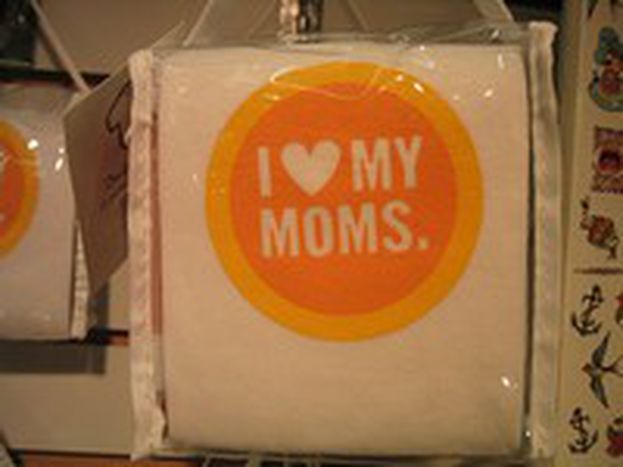
French adoption: ‘intercity babies’
Published on
Translation by:
Sarah GrayRestrictive adoption law drives French lesbian couples across Belgian and Dutch borders to be artificially inseminated
‘Intercity babies’ is a phrase that Marie-Pierre can’t stand. ‘Reproductive tourism’ is another. As a lesbian and a mother, she deplores these throw-away terms which, in her opinion, ‘fail to do justice to what is above all the desire to have a child, a couple’s plan to start a family.’ The ‘intercity babies’ phenomenon is known in French as les bébés Thalys, named after the high-speed train linking Paris with Brussels and Amsterdam. For the moment the phenomenon exists on a small-scale, but it looks set to explode, as more and more French lesbians are heading to Belgium or Holland to conceive.
In 2000, Marie-Pierre and her partner decided to go for artificial insemination. They would have liked to adopt a child, but the adoption process in France is too complicated. Adoption by homosexual couples is not allowed; legislation which is considered illegal under European law. Article 13 of the Amsterdam Treaty forbids all discrimination ‘based on sexual orientation’.
Marie-Pierre explains the matter simply: ‘in order to adopt, one of us would have had to pass for a single woman and hide her sexuality during the vetting procedures carried out by the French Department of Health and Social Affairs (DASS).'
Fertility clinics
With adoption excluded from the options, there is one solution left: insemination. In France, however, only heterosexual couples with fertility problems have access to medically assisted reproduction facilities. Many lesbians are therefore choosing to go to Holland or Spain for insemination. Martine Gross, of the French National Centre for Scientific Research (CNRS), who has written a book on gay parenting, confirms that the percentage of women who resort to this approach is increasing constantly; from 40% in 2001 to 60% in 2005.
This approach has become so popular that Belgian fertility clinics have had to take various steps just to provide for these French lesbian couples. In 1998, the university hospital Erasme helped about 30 such couples to have a child. In 2000, there were 170 cases and it was even necessary to launch a recruitment campaign for extra sperm donors. In 2002, faced with a flood of requests, the hospital chose to limit the number of cases to 600 a year. Other institutions have chosen to make block-bookings in their schedules exclusively for French lesbians.
Anne Delbaere, a doctor at the Erasme Institution, emphasises that this method of conception is ‘frustrating both for the women and for the doctors who wish to help them. It’s time that French politicians took action and stopped turning a blind eye to this issue.’
Some estimate that 600 ‘intercity babies’ have crossed the Franco-Belgian border just after their conception. In Spain, artificial insemination is available, but only in private clinics. ‘The whole process is therefore two or three times more expensive than it is in Belgium,’ points out Franck Tanguy, an Association of Gay and Lesbian Parents (APGL) member.
Hidden hypocrisy
In France, only a child’s biological mother has legal recognition. Unlike in neighbouring countries, gay parent families are not legally recognised. They can't have their family unit recorded in the official figures. According to Gross, between 200 000 and 300 000 children are being raised by gay parents. A 1997 survey by French gay men magazine Têtu, revealed that 11% of lesbians and 7% of gay men have children. These figures are believed to have doubled in the past ten years.
Homosexual couples with children are forced to deal with being unrecognised and treated hypocritically. Thus Marie-Pierre’s partner, who looks after their three children on a day-to-day basis, is a stranger to them in the eyes of the law. She can’t sign their school reports, attend parent-teacher meetings. In the case of a couple’s separation, the biological parent keeps their children and the other parent has no right to custody whatsoever. If the latter should die, he or she can’t leave anything to the children in their will.
In an ironic twist of fate, the 'French Family Allocation Fund (CAF) recognises gay parent families as households,' Marie-Pierre tells us. Thanks to this, her partner was even able to take maternity leave from work when the children were born.
Thankfully, in everyday life the cases of blatant discrimination against gay and lesbian parents are fairly rare. Their children’s education can take its course smoothly. In fact, the names of the children’s two mums are on the childminder’s files and the medical community considers them as two parents. Two ‘normal’ parents.
Translated from Bébés thalys : adoption à grande vitesse



